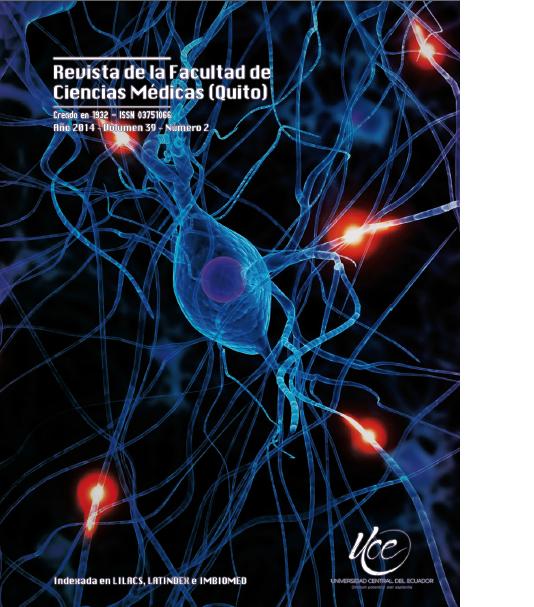¿Hacia dónde va la medicina?
Abstract
Tratar de predecir el futuro es un arte que aún nadie consigue. Sin embargo, se podría predecir los cambios que se aproximan, en la práctica de la medicina en el futuro mediato, sobre la base del desarrollo científico y tecnológico de los últimos años. Este breve ensayo pretende realizar un análisis sobre la incorporación de nuevos conocimientos en la formación del médico en nuestro país. Esta es una visión futurista de la medicina, que pretende incorporar nuevos contenidos en la formación del médico general ecuatoriano. Para facilitar la lectura, este documento se ha estructurado en tres componentes:
1. El enfoque: las perspectivas globales en salud.
2. Los nuevos contenidos: las tecnologías en medicina y en el cuidado de la salud, los retos de la ingeniería biomédica.
3. Las nuevas competencias: hacia un nuevo médico ecuatoriano.
Downloads
Metrics
References
2. Bhutta ZA, Chen L, Cohen J, Crisp N, Evans T, Fineberg H, et al. Education of health professionals for the 21st century: a global independent Commission. Lancet. 2010 Apr3;375(9721):1137-8.
3. Birbeck GL, Wiysonge CS, Mills EJ, Frenk JJ, Zhou XN, Jha P. Global health: the importance of evidence-based medicine. BMC Med. 2013 Oct 16; 11:223.
4. Frenk J, Chen L, Bhutta ZA, Cohen J, Crisp N, Evans T, et al. Health professionals for a new century: transforming education to strengthen health systems in an
interdependent world. Lancet. 2010 Dec 4; 376(9756):1923-58.
5. Wilkinson D. The future of medical education. The Oschner Journal, 2012 (12): 300-1.
6. Pagani MR, Oishi K, Gelb BD, Zhong Y. The phosphatase SHP2 regulates the spacing effect for long-term memory induction. Cell. 2009 Oct 2;139(1):186-98.
7. Moscovitch M, Nadel L, Winocur G, Gilboa A, Rosenbaum RS.The cognitive neuroscience of remote episodic, semantic and spatial memory. Curr Opin Neurobiol. 2006 Apr;16(2):179-90.
8. Winocur G, Wojtowicz JM, Sekeres M, Snyder JS, Wang S. Inhibition of neurogenesis interferes with hippocampus - dependent memory function. Hippocampus.
2006;16(3):296-304.
9. Mullan PB, Williams J, Malani PN, Riba M, Haig A, Perry J, et al. Promoting medical students’ reflection on competencies to advance a global health equities curriculum. BMC Med Educ. 2014 May 3;14(1):91.
10. Meskó B, The Guide of the future of the medicine white paper, 2014.
11. Hoffman SJ, Frenk J. Producing and translating health system evidence for improved global health. J. Interprof Care. 2012 Jan;26(1):4-5.
12. Oak SN. Medical simulation: a virtual world at your doorstep. J Postgrad Med. 2014 Apr-Jun; 60(2):171-4.
13. MSP, Modelo de Atención Integral en Salud - FC. Disponible en: http://instituciones.msp.gob.ec/ somossalud/images/documentos/guia/Manual_MAIS-MSP12.12.12.pdf
14. Frenk J, Moon S. Governance challenges in global health. N Engl J Med. 2013 Mar 7;368(10):936-42.
15. AAFMC, The Association of faculties of medicine of Canada. The future of medical education in Canada (FMEC): a collective vision for MD education. Otawa. www.afmc.ca/fmec











